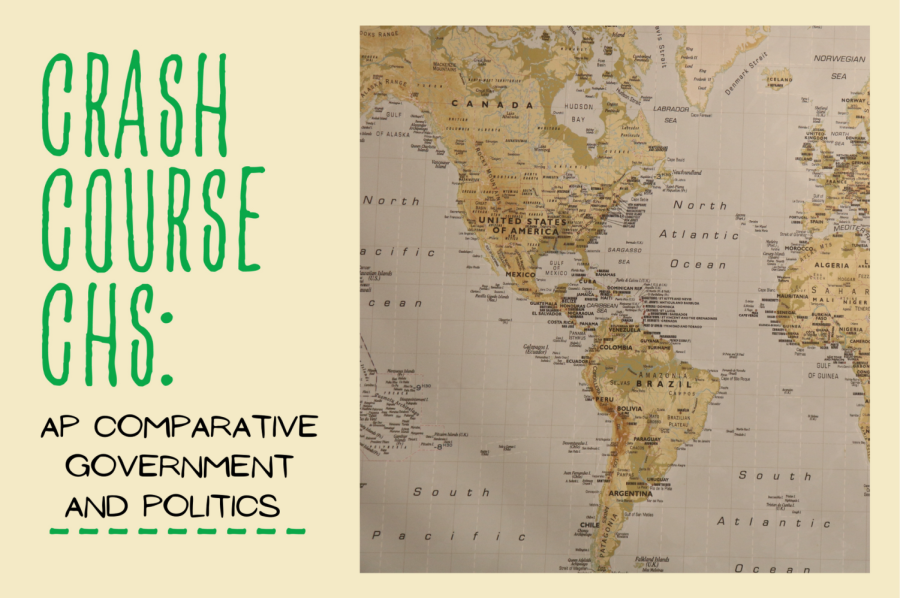Crash Course CHS: AP comparative government and politics
AP comparative government and politics is a one semester course at Coppell High School offering students the ability to gain insight into countries and their global affairs. Throughout the course, students participate in various projects, activities and assignments tailored to global politics.
May 6, 2022
Crash Course CHS is a Sidekick series in which student life editor Anette Varghese and social media manager Aliya Zakir answer questions about CHS courses. In this edition, Varghese and Zakir talk to CHS history teacher Shawn Hudson.
Why is AP comparative government and politics a one semester course?
AP comparative government and politics has a narrow set of objectives that we compare between six different countries. There’s no need for a whole year to accomplish those objectives.
What is the commitment level?
If students are willing to give 90 minutes of effort each class period, that’s it. We don’t ask for homework or any other outside work.
Are there any prerequisite courses?
None at all. Students do not have to take AP U.S. government. Most students take world history but there are no required prerequisites.
Is the course material challenging to understand?
It can be tricky to keep information separate when discussing six different countries at the same time about the same topics but after a bit, students get a good sense of who’s who and which information fits with each country.
What countries are addressed and compared in the course?
The six countries include: China, Iran, Mexico, Russia, United Kingdom and the U.S.A.
How are the course units formatted?
The units are topical. After students get through an introductory unit, units that follow include: political institutions, culture, elections and political parties, and finish off with globalization.
What is the difference between AP comparative government and politics and other AP U.S. government and politics?
The U.S. government course only focuses on American government. The course uses American government as a backdrop but always comes back to comparative government. We are much more focused on comparing and evaluating government systems than just learning about a singular one.
Are there physical tests and projects?
The course has a bit of both. Summative assessments are used to wrap units up and there are one or two projects throughout the course of 18 weeks.
What is the most challenging part of the course?
Most students lack motivation as the course is an elective. The course material can get detailed which challenges them to stay on task.
Follow Aliya (@aliyafza), Anette Vargheese (@AnetteVarghese) and @CHSCampusNews on Twitter.










